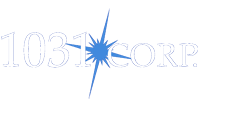Section 1031 of the Internal Revenue Code provides that no gain or loss shall be recognized on the exchange of real property held for productive use in a trade or business or for investment if such real property is exchanged for real property of like-kind to be used either for productive use in a trade or business or for investment.
Simply put, an exchange is the sale of a business use or investment property followed by the acquisition of another linked together by paperwork and completed within the set time periods. They have been part of the tax code since 1921 and are based on the continuity of investment, encourage reinvestment and are good for the economy.
A Qualified Intermediary (QI), such as 1031 CORP., acts as the facilitator or middleman in a 1031 like-kind exchange. The word “qualified” refers to the QI’s relationship to the Taxpayer or Exchanger. To be a “qualified” intermediary, the party must not be the actual Taxpayer nor the Taxpayer’s employees, partners or a close relative or within the past two years served as the Taxpayer’s accountant, attorney, real estate professional or financial advisor.
An Exchange Accommodation Titleholder (EAT) is used to complete a reverse exchange or improvement exchange. In a reverse exchange, the EAT holds legal title to either the relinquished or replacement property until the relinquished property can be conveyed to a buyer. In an improvement exchange, the EAT holds legal title to the replacement property and makes the identified improvements before conveying the improved property to the Taxpayer within the 180-Day Exchange Period.
When must a reverse or improvement exchange be initiated? A reverse or improvement exchange takes longer to properly structure especially if third-party financing is necessary. Please contact 1031 CORP. as early in the process as possible but do not take title to the desired replacement property until your reverse exchange is initiated.reinvestment and are good for the economy.

©2025 1031 CORP. All rights reserved. Privacy Policy